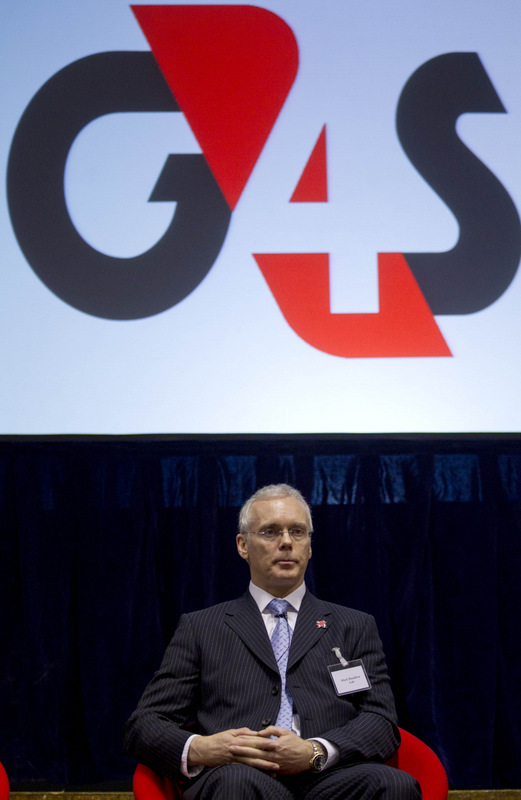
Arafat Jaradat was arrested on Feb. 18, 2013 in connection to a stone-throwing incident the previous November in which an Israeli was hit, but only slightly injured. After just five days in jail, a spokeswoman for the Israeli Prison authority stated that the 30-year old gas station attendant and father of two had died of cardiac arrest while in Israeli custody.
An autopsy in Tel Aviv that was witnessed by Palestinian doctors found that — contrary to the prison authority’s statement — Jaradat showed no signs of clogged arteries or other indications of heart disease.
Instead, the autopsy indicated that Jaradat had internal hemorrhages and two broken ribs.
Prior to this death, Jaradat told his lawyer he was tortured, but requests to have Jaradat checked by the prison doctor were denied. He had also indicated that he was afraid to return to his cell.
“When the soldiers came to arrest him last week, they told him say goodbye to your wife and your babies, you won’t be seeing them again,” Mohamed Hashlamon, a neighbor of Jaradat, told the Guardian on Feb. 24 that year.
For the nearly 6,800 Palestinians in Israeli custody, Jaradat’s situation is not unfamiliar. According to the Guardian, one-fifth of the Palestinian population and nearly half of all Palestinian men in Israel or the disputed areas have been in an Israeli jail at least once. The Israeli prison system has been accused of widespread mistreatment of its political prisoners. Allegations of severe overcrowding, poor access to food and medical attention, prisoner isolation and attacks and beatings either connected to interrogations or without reason. Currently, 183 Palestinians under the age of 18 are incarcerated.
British multinational G4S operates many of the security systems and checkpoints in Israel, including the systems in the interrogation center where Jaradat died.
By revenue, G4S is the world’s largest security company, and after Wal-Mart and Foxconn, it is the world’s largest private employer. It has operations in approximately 125 countries, including Israel and the United States, where the company built and operates the Customs and Border Protection’s prisoner transport buses.
Despite its size, the company regularly finds itself at the center of controversy. In October 2013, the BBC reported that the South African government was taking control of the Mangaung Correctional Center after a string of violent riots and stabbings, prison officers being taken hostage and prison staff strikes that rocked the prison.
This was followed by a BBC investigation showing that G4S used forced injections and electric shock treatments to subdue inmates in South Africa. Currently in the United Kingdom, three G4S employees are being tried on charges of manslaughter in the death of a man on a plane at London’s Heathrow Airport in 2010. An inquest jury previously found that the three men unlawfully killed the man, who was having a heart attack at the time.
G4S’s involvement in such a large number of scandals and controversial actions has led to a movement for one of G4S’s largest stockholders, the Bill & Melinda Gates Foundation, to divest from the company.
The Bill & Melinda Gates Foundation, which serves as a philanthropic front for Bill Gates, the founder and former chairman of Microsoft, is dedicated to enhancing health care, reducing extreme poverty and expanding educational opportunities in the U.S. With an endowment of $38.3 billion, it is one of the largest private foundations in the world. Gates himself is its largest donor, having donated $28 billion as of May 2013.
The foundation regularly invests its endowment funding in companies that provide the best return-on-investment, even if a company’s philosophy conflicts with that of the foundation. This means that the foundation has invested in companies that are causing the poverty the foundation is trying to eradicate and in pharmaceutical companies that don’t sell their medications in countries in which the foundation offers emergency assistance.
“The issue that we found is that the Gates Foundation established a firewall between the people who manage its investments and the people who give away its grants, and as a result, there is no coordination made so that the investments don’t tend to contravene the grants and the charitable goals of the foundation,” said Charles Pillar, the lead reporter for the Los Angeles Times’ investigative team that broke the story on the foundation’s harmful investments. “And so, as a result, what we found is that the 95% that’s invested every year, in large measure, tends to go to industries … that in many cases directly engage in activities that tend to subvert the charitable goals of the foundation.”
The Bill & Melinda Gates Foundation defends its practices by insisting that the group is serving to change the companies’ operating practices via voting influence.
Addameer, a Palestinian prisoner support and human rights association, and the Palestinian Boycott, Divestment and Sanctions National Committee are also calling for a day of solidarity for Palestinian political prisoners on April 17.
“The Bill and Melinda Gates foundation, the biggest charitable foundation in the world, owns shares in G4S worth more than $170m,” Addameer states on its campaign page. “The Gates Foundation says that it is ‘guided by the belief that every life has equal value’ and that it uses its investments to fund projects that ‘help all people lead healthy, productive lives.’ But through its holdings in G4S, the Gates Foundation is legitimising (sic) and profiting from Israel’s use of torture and mass incarceration.”

